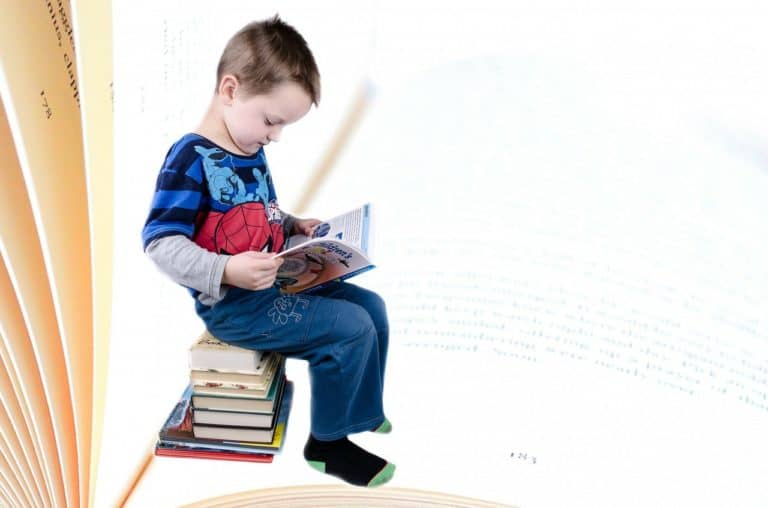Common Homeschooling Myths
Most people possess an opinion on education. Some believe in homeschooling, others are firmly against it. You already know that I unequivocally believe in homeschooling, but in this post I will describe the top six homeschooling myths that I have encountered in my twenty five years of teaching.
As a trained schoolteacher, I can honestly say that most of my college education consisted of learning how to control a classroom – not actually how to teach. I am an educated, certified teacher, but I also believe that teaching is a talent and a gift. Teaching comes naturally to me because I love to share what I know. My “average ability” allows me to be able to impart the information in a way that most people can understand. Sometimes I think that my “average ability” is actually an asset to teaching what I know. Because I cannot express myself in ways that an expert could, the ways I do express myself are more easily understood.
Also, no matter how hard I tried to meet the needs of all of my students, I could only choose to teach to the middle. I did not have time to teach to the benefit of all my students at all times, so at one time or another they got left behind. This fact drove me nuts. I wanted to be the best teacher that I could possibly be, but I couldn’t deal with all the bureaucracy. And now, having my own children, I realized that no matter how much I loved my students, it will never compare to the love that I bear for my own children.
From the moment that I found out that I was pregnant with Super Stuffy, I knew that I wanted to stay home and home school him. Nothing in this world would make me happier. I was thrilled to know of his impending arrival. I also wanted to hold onto him for as long as possible. But before I could start homeschooling him, I had to convince my husband. I also heard a lot of protests from my in-laws. So I started by researching some common homeschooling myths so that I could arm myself with logical and coherent arguments. These are some of the myths that I encounter(ed) in all of the years since Super Stuffy was born.
Homeschooling Myth #1

I wouldn’t be able to stay home with my kids all day.
This homeschooling myth makes me laugh. I don’t know if my parents felt this way, but I do know that I would feel awful if I had ever overheard either one of them saying this. When I tell other people that I homeschool and they respond with this statement, it absolutely floors me. I consider being able to stay home with my children as a blessing and a privilege. There are times when I wish that I could get away and be by myself for awhile, but I want to be with them. Homeschooling allows me to know my kids inside and out. I know what they are involved in, who their friends are, and what is in their hearts. My children and I have the opportunity to discover what is in each of our hearts and minds.
I don’t disparage those moms who say this, but in all honesty, I don’t understand this feeling. God has blessed me so much in this short time to be able to truly know my children. We learn how to interact with each other and share our lives together. And until they leave my nest, homeschooling gives me the opportunity to make the biggest impact on my children’s lives. If I were to put them in school, I would abdicate my chance to make the greatest impact. Their teachers and peers would become the ones who influence them the most. This may be selfish, but I want that privilege.
Because of my teaching experience, I know that no other person besides the Lord loves my children the way that I do. The Lord has mandated that I am the one responsible for teaching my children, and until His will changes (it won’t) I take this mandate seriously.
Homeschooling Myth #2

Lack of Socialization
If I search out homeschooling and socialization online, I can come up with hundreds of articles talking about it. This may be one of the most common myths about homeschooling, and the one that almost everyone asks. So many people believe that a homeschooled child cannot be properly socialized.
Many definitions of socialization exist, but I will concentrate on the one that I believe most people mean when this question arises. Will this child be able to participate and function in our society if they don’t spend 13 years of their life stuck in a box with 20-25 people who are the same age? Is there anywhere else in real life where human beings are segregated by age? But let’s first look at some of the positive effects of spending time in school all day
Positive Effects of School Socialization
- Waiting in line – my kids get that practice every time we go shopping or go to the state fair.
- Taking turns – all we have to do is play games in order to learn how to take turns
- Public speaking – this one IS harder to get practice at, but my kids can experience public speaking at 4H events, at church, and in front of family members.
- Making friends – this can result in lifelong relationships, but that doesn’t happen every time. In my own experience, I have not had contact with anyone that I went to school with in over twenty years. My friends today are people that I have frequent contact with at church and in my life.
These four are the only positive effects that I can come up with in reference to spending time in school all day. However, there are multiple negative effects. I will touch on only a few that make the most difference to me.
Negative Effects of School Socialization
- Prison time – As far as I am concerned, school is a glorified prison. Nowhere else in our society are people forced to stay in a place that they don’t want to be. Each child who attends school must stay in their classes for seven to eight hours out of every day. They have no option as to what they will do with their time during those hours. They cannot choose what they want to learn, and if one of them finds something that they truly want to learn, they are forced to stop learning that particular thing when the bell rings. These have the effect of stifling a child’s natural desire to learn. Contrary to popular opinion, nobody can be forced to learn anything. You can force a child to memorize facts under the threat of negative consequences, but memorization is not learning. Most of the facts that I learned in school I have forgotten. (By the way, that is why shows like “Are You Smarter than a Fifth Grader” became so popular)
- Bullying – I have actually been told that I need to put my children into school so that they can learn how to deal with bullies. Really? Why would I want to subject my child to a bully that he/she can’t get away from? To me that is the ultimate form of cruelty to my children. And coming from a teacher, no amount of anti bullying programs in any school can completely get rid of all bullying. Kids are smart, and they will not bully when an adult is around. Adult’s hands are tied because they can do nothing without absolute proof of bullying. Anyway, in the adult world, if I am confronted by a bully I have the option to move away. My child DOES NOT have that option in school. They will learn how to deal with bullies by watching me.
- Peer pressure and the need to fit in – Very few children allow their peers to see who they really are. All of their emotional energy is focused on making sure that they fit in. True individuals in school experience bullying, embarrassment, and fear on a regular basis. Everyone claims that our goal in school is to teach children how to be unique and exceptional, but that is only talk. Every school class, no matter how good it is, always boils down to the lowest common denominator. It caters to the “herd” mentality. No one truly wants to stand out.
What does negative socialization look like?
In elementary school this translates to wearing the right clothes, not acting “weird”, and making sure that people like you. Anyone who stands out is teased and picked on. Once that child reaches middle and high school, the stakes increase. Now they experience the pressure of trying harmful things such as alcohol, drugs, and rebellion in order to fit in. Every time I sub in my husband’s high school it always surprises me the level of disdain that these kids have for their parents and their teachers. Why would I want my child to be immersed in that kind of culture?
My biggest problem with school socialization is that I would basically be tossing my children into a pond where a majority of the population knows no more than my child what proper socialization is. Yes, the teachers understand it, but the teachers normally don’t have the time nor energy to really create a close relationship with each individual student. Most of the socialization instruction that my child would receive would come from other children who don’t know how to socialize any more than mine does. Why should I allow people who are as inexperienced at social skills as my children teach such an important life skill?
My kids don’t spend all day sitting at home
So does this mean that my children are not socialized? Far from it! If anything, I believe that my children get more practice in interacting with society than an average kid in school. They interact with people of all ages. We have opportunities to experience life and society on a daily basis. They have plenty of friends through their extra curricular activities. They talk to people while looking them in the eye.
I have a say in who we interact with and how our interactions take place. If my child gets into a social situation that overwhelms him/her, I can step in to help. I have taught them how to order for themselves in restaurants, they are able to pack their own suitcases when we go on a trip, and they know how to ask questions when they need help. They are learning social skills from real life, not from a canned experience stuck inside a box for 13 years of their lives.
Homeschooling Myth #3

Sub Standard education – parents must be qualified
My first question when somebody raises this objection to homeschooling is “Who taught this child to walk, talk, eat, go potty, and sing his ABC’s? Why all of a sudden when that child turns 5 or 6 is that parent suddenly unqualified to continue teaching that child? Out of everything that can be learned, there are truly only three things that are necessary for a successful life. Those are reading, writing, and a knowledge of basic math.
The ability to read allows you to learn anything else that you want to learn. If you can write, then you can share your ideas with the world. If you know basic math, then you will be able to pay your bills, keep a checking account, and become an independent, functioning member of society. All three of these skills permeate every level of successful society. You would almost have to fight against learning them in order not to learn.
As an example, when my children were little, I tried in bits and spurts to teach my children how to read. All I succeeded in doing was destroying their love for reading. Both of my children learned to read on their own. I honestly have no idea how they did it. They learned because reading was a necessary skill to master in order to do things that they wanted to do. Most parents are completely qualified to teach their child to read, write, and do basic math.
Dr. Ben Carson
I always love to bring out the story of Dr. Ben Carson, one of the best neurosurgeons in the world. He credits his mom for his start in education. She could barely read, and yet her encouragement and insistence that he read two books every week started him on his journey to a successful education and life.
Higher level subjects
But I can hear all those people asking this question, “What about all the higher level subjects that need to be learned? Not every parent is qualified to teach all of that stuff.” Good point. There is no way that I could teach my children trigonometry, chemistry, or calculus. But I do not need to know those subjects in order to do what I want to in life. If my children want to know those things, then they will have the motivation to learn them. My job by that point will be to teach them how to find the resources that they need in order to learn. Every parent is qualified to teach their children how to learn, because we each still learn every single day.
History and Science?
But what about history and science? There is so much historical and scientific information out there that it is impossible to know it all. Every single textbook creator, principal, and teacher knows that choices need to be made about what information to include and what to leave out. I get to choose what information to impart to my children. That is the difference between my homeschooling and putting my children in school. I can choose the books that they read. History becomes a story about people who have gone before us, not an endless array of names and dates. You can learn any history by reading biographies, journals, and historical narratives. Basic science can be learned by interacting with the natural world on a daily basis.
Only three basic qualifications needed
A parent truly needs only three qualifications in order to educate their child. 1. A parent needs a desire to look out for the best for that child. 2. That parent needs to foster, not suffocate the child’s innate desire to learn. 3. And that parent needs to be able to teach that child how to learn. All other qualifications are secondary. Every parent who takes the time and effort to honestly homeschool their child possesses these qualifications.
Homeschooling Myth #4

Homeschooling needs to be regulated to prevent child abuse
This leads me to the next homeschooling myth. Shouldn’t homeschooling be more regulated to prevent child abuse? I believe that nothing hurts the cause of homeschooling more than all the news stories that we hear about parents who pull their children out of school to hide child abuse. Child abuse is horrific and detestable. If we could find a way to delete it from our society I would be all for it.
But to demand that an entire group of law abiding citizens should be regulated and watched more carefully because a small percentage of that group breaks the law violates our rights as free citizens. If a journalist breaks a law, procedures are in place to punish that journalist. If a teacher in a public school breaks the law, the same procedures apply. Why should we punish all journalists or teachers because one broke the law? In the same way, why should all homeschooling parents be punished for that one who broke the law?
Does homeschooling increase the risk of child abuse?
This myth also operates under the false idea that children who go to public school are less likely to be abused by their parents. That is completely false. No study exists that shows a higher percentage of homeschoolers abused when compared to their public school counterparts. The only homeschooling stories we tend to hear about are those which magnify abuse. But there are thousands of homeschooling parents who try to do what they believe to be right for their children. We need to punish parents who abuse their children, whether homeschooled or not. We should not take away the rights of all parents to direct the education of their children simply because of the few who break the law.
Homeschooling Myth #5

Prevent Religious Indoctrination
This argument stems from the mistaken belief that public schools teach impartially. And homeschool parents, especially those who are “religious, ” force feed their beliefs onto their children. However, I have news for everyone. No single person on the face of the earth is impartial. NOT ONE! We all teach the next generation based on our beliefs, our worldview, and our biases. Even kids in public school learn a certain set of beliefs. Contrary to popular opinion, there is no absolute proof that God does not exist. You either believe that He does, or you believe that He doesn’t.
The evolutionary theory is just that, a THEORY. Science cannot repeat evolution, so there is no absolute proof that it actually happened. If I put my children in public school, they would be taught beliefs that other people think are the most important. Homeschooling parents just choose for themselves which particular beliefs they want their children to learn and understand. Not one human being has the ability or the power to tell me what I can or cannot believe. All homeschooling does is allow me to choose which beliefs I want to teach.
Am I sheltering my children?
Does this mean that I do not expose my child to other people’s beliefs? Absolutely not! Super Stuffy loves dinosaurs. He can’t learn anything about dinosaurs without learning about evolution at the same time. Most books and videos posit the evolutionary theory as a proven fact all over our society. What’s different is that I teach him what we believe and why we believe it. Right now we are in the process of learning the truth about dinosaurs. Everyone in the world has the same dinosaur evidence. We just all interpret that evidence differently. The public school would still teach my child a set of beliefs, just maybe a different set of beliefs than those that I possess.
The Basic Truth
Most people believe that we should not murder or steal, and that we should be kind to each other. We all teach our children these beliefs. But why? Aren’t these beliefs all just a matter of opinion? Is there a truth behind these beliefs? If there is a truth behind them, then am I not obligated to teach my children that truth? If this belief proves true, then according to whose standard? No human being is capable of determining what is moral or true on their own. If there is no objective reason beyond myself why I should not murder or steal, then why shouldn’t I do those things if it’s going to help me? My homeschooling allows me to teach what I believe is true.
Morality and truth have to come from something higher than humanity, otherwise it is meaningless. In response to this logic, I teach my children that truth comes from God. Since He created everything, He has the authority to tell me what is true and what is not. I have a responsibility to teach this truth to my children.
Homeschooling Myth #6

They will miss out on all those “fun” things that school students are able to do.
Field trips, riding the bus, snow days, parent/teacher conference days, prom, homecoming, band concerts, shop class, etc.
In all honesty, I believe that homeschool student have more time to do all those “fun” things. Research has repeatedly shown that the actual learning time of most days in school is one to two hours per day. Time wasters consume the rest – passing out papers, taking attendance, changing classes, discipline issues, etc. My children, because they are homeschooled, bypass all of that busywork. They can learn much more quickly and then have a lot more free time to pursue their own interests.
We have lots of free time 🙂
At times, Super Stuffy complains that he wants to go to school because our district school takes certain days off. However, I reminded him that we take every Wednesday off and many Fridays. He also enjoys most of his afternoons free to do what he wants to do. He quickly backtracked and said that homeschooling is better.
Homeschooling embodies the freedom to choose
As far as the specific “fun” things like prom, homecoming, and field trips, we can do all of those. We go on field trips all the time, and we have the added freedom of going when and where we want to go. Our homeschool group puts on a homeschool prom every year, so that is also available for them when they reach high school age. We have the freedom to take advantage of shop classes and band at our local public school. But we get to choose what we want to do. That is the wonderful advantage of homeschooling. We get the freedom to CHOOSE.
As far as riding the bus goes, do any of you think that you would regret never riding a school bus? I know I wouldn’t. However, even if they did miss out on all of these public school “rites of passage”, this reason would not be enough for me to put my kids in public school. With all of the freedom that my children have throughout each and every day, I do not believe that they would think that they are missing out on anything!
Have any of you heard or encountered any of these misconceptions about homeschooling? Comment below if you have heard these or any others that have made an impression on you.








